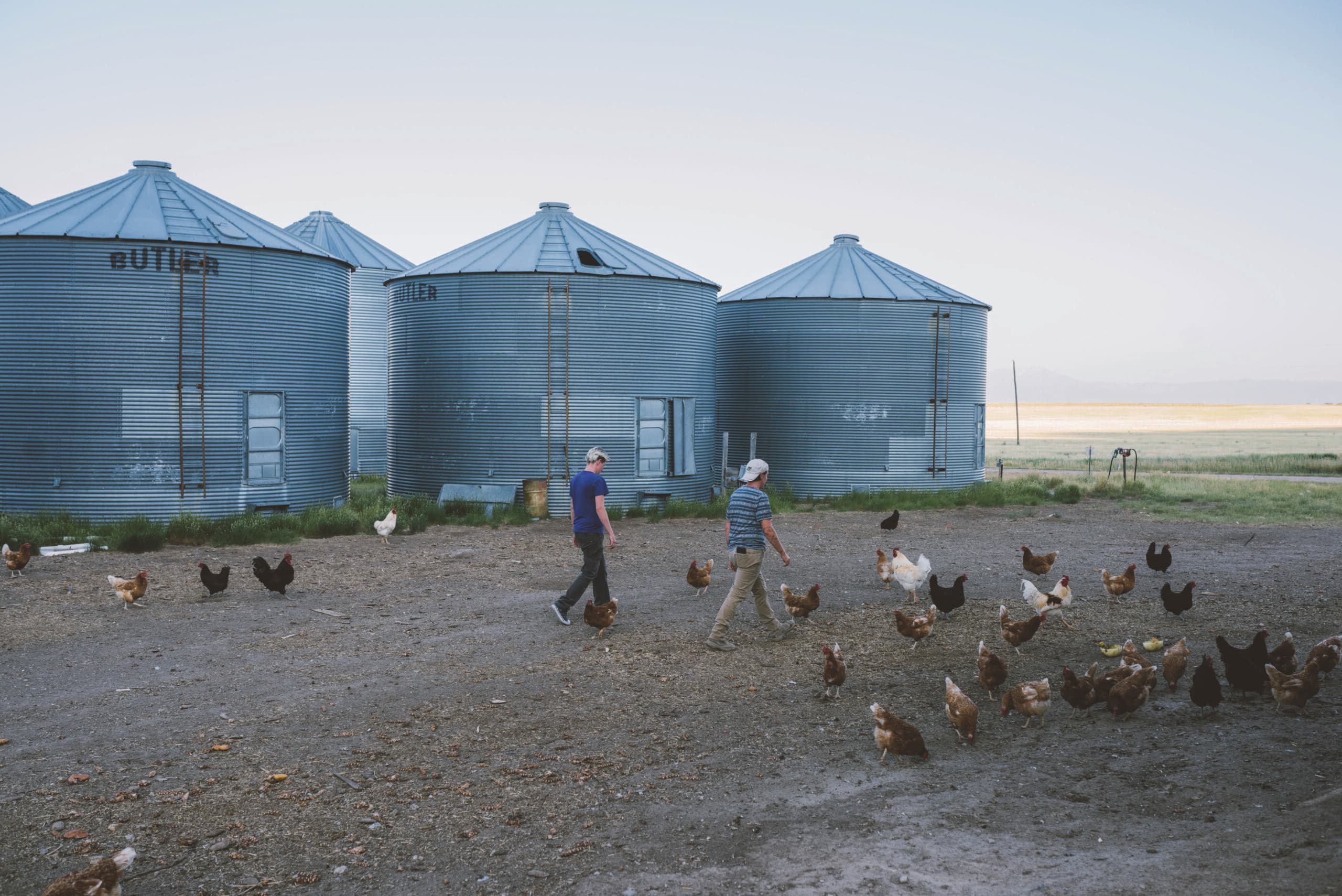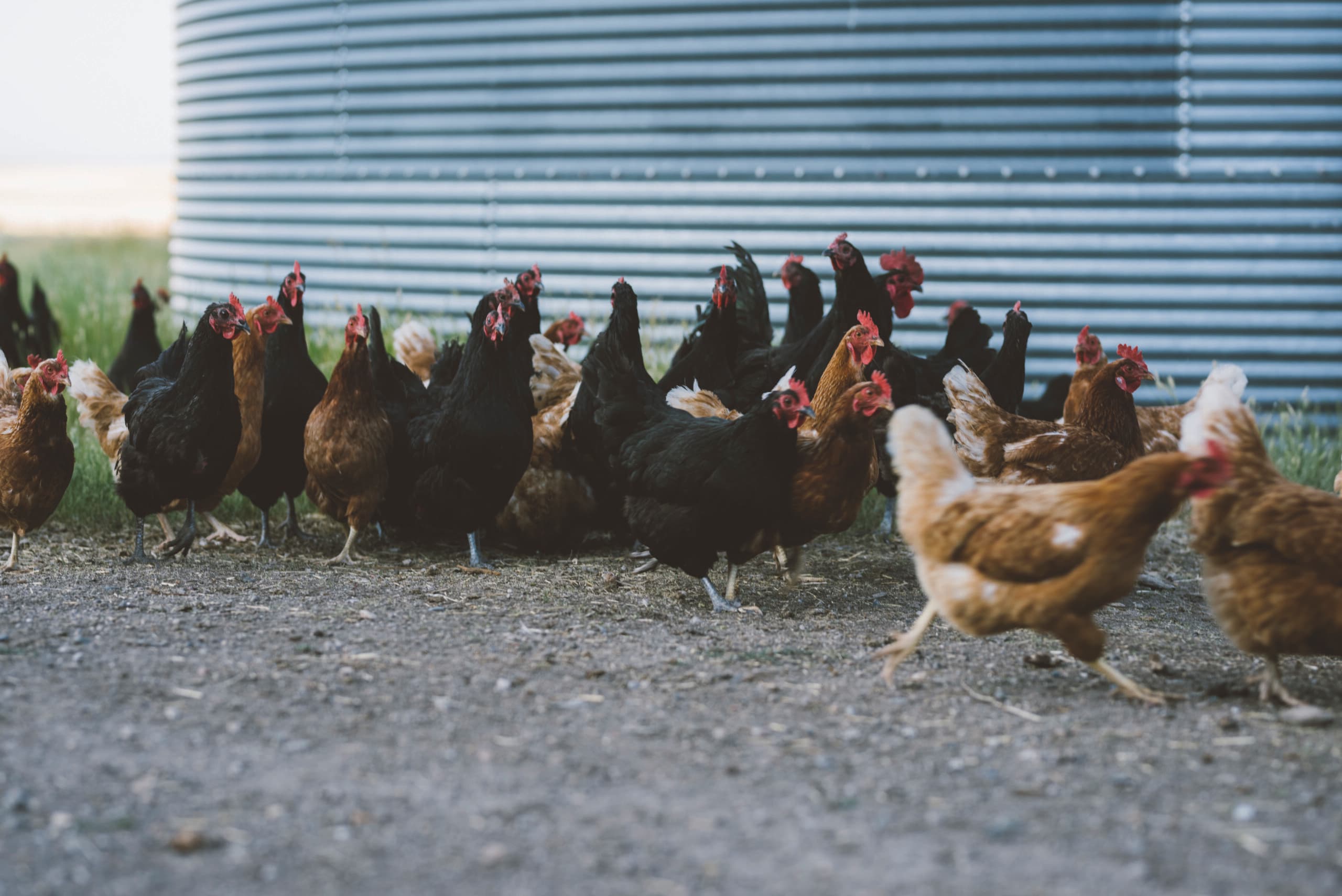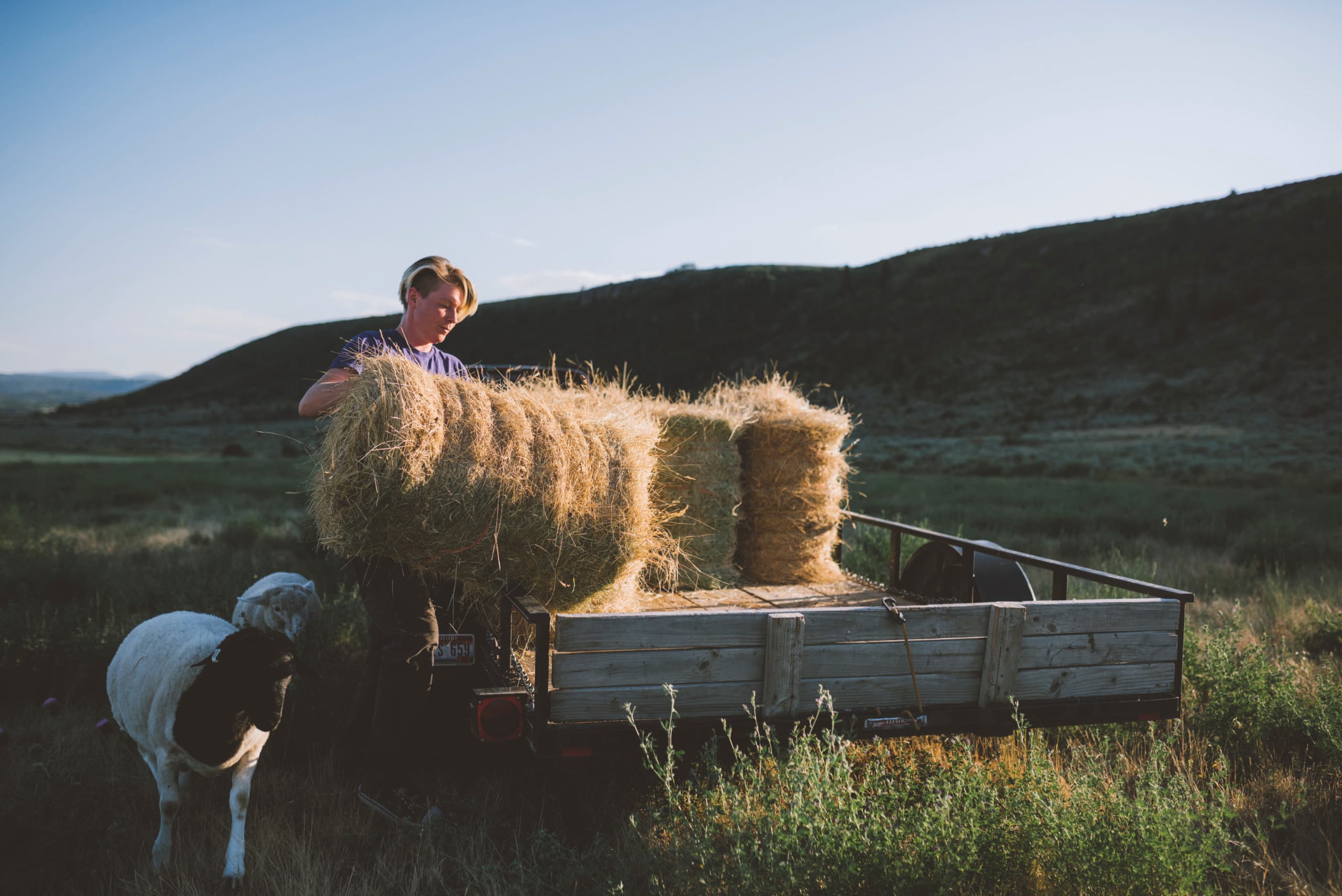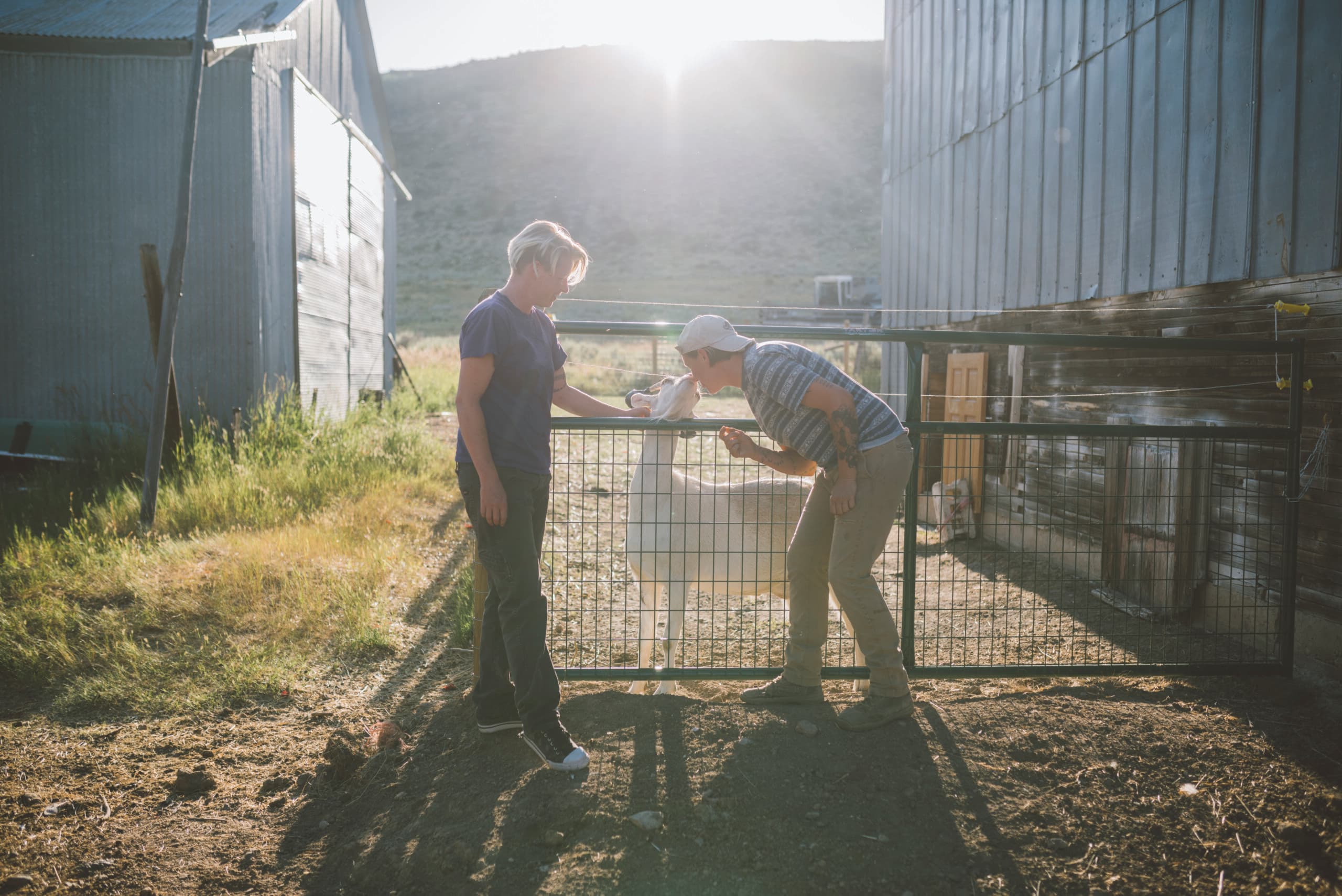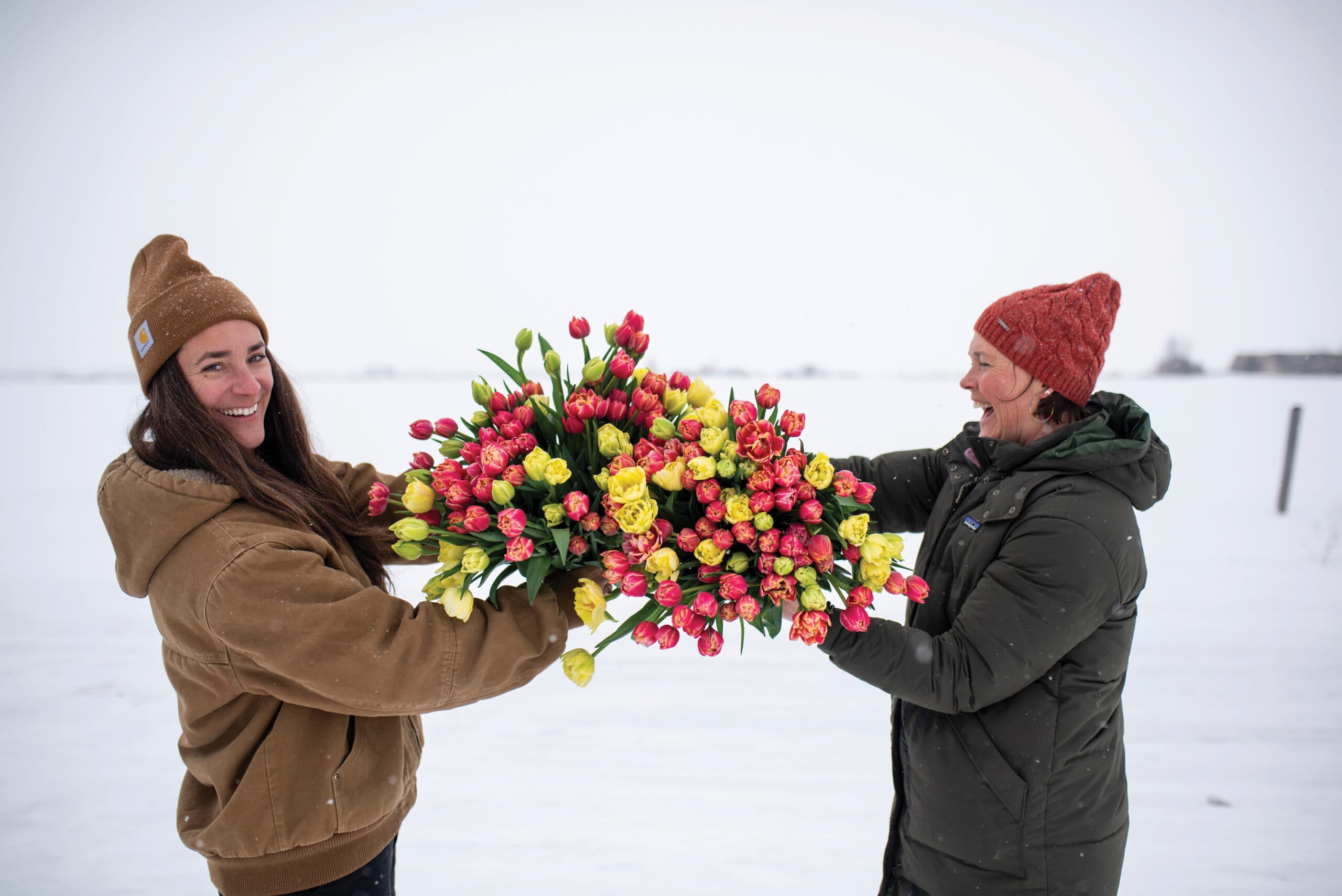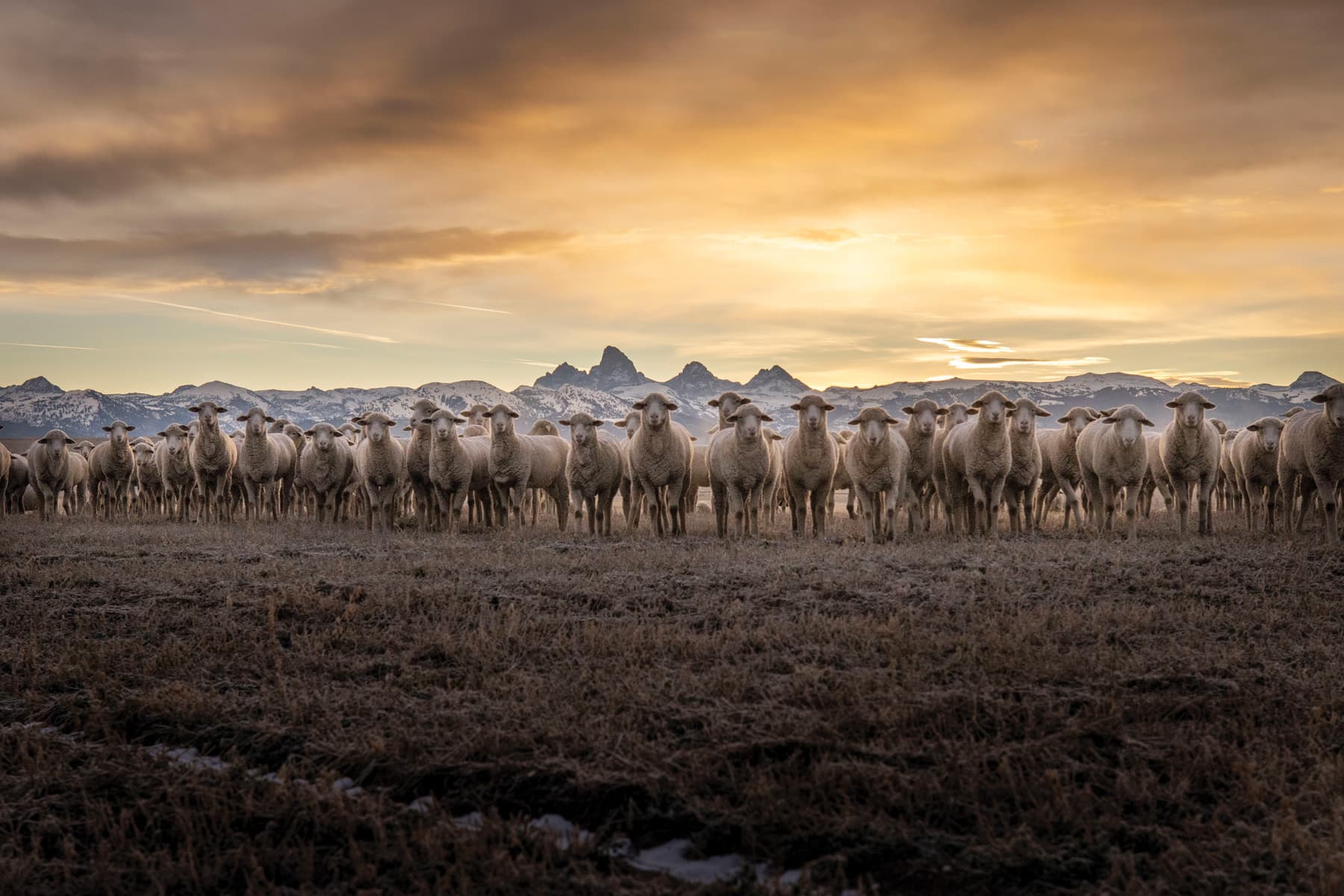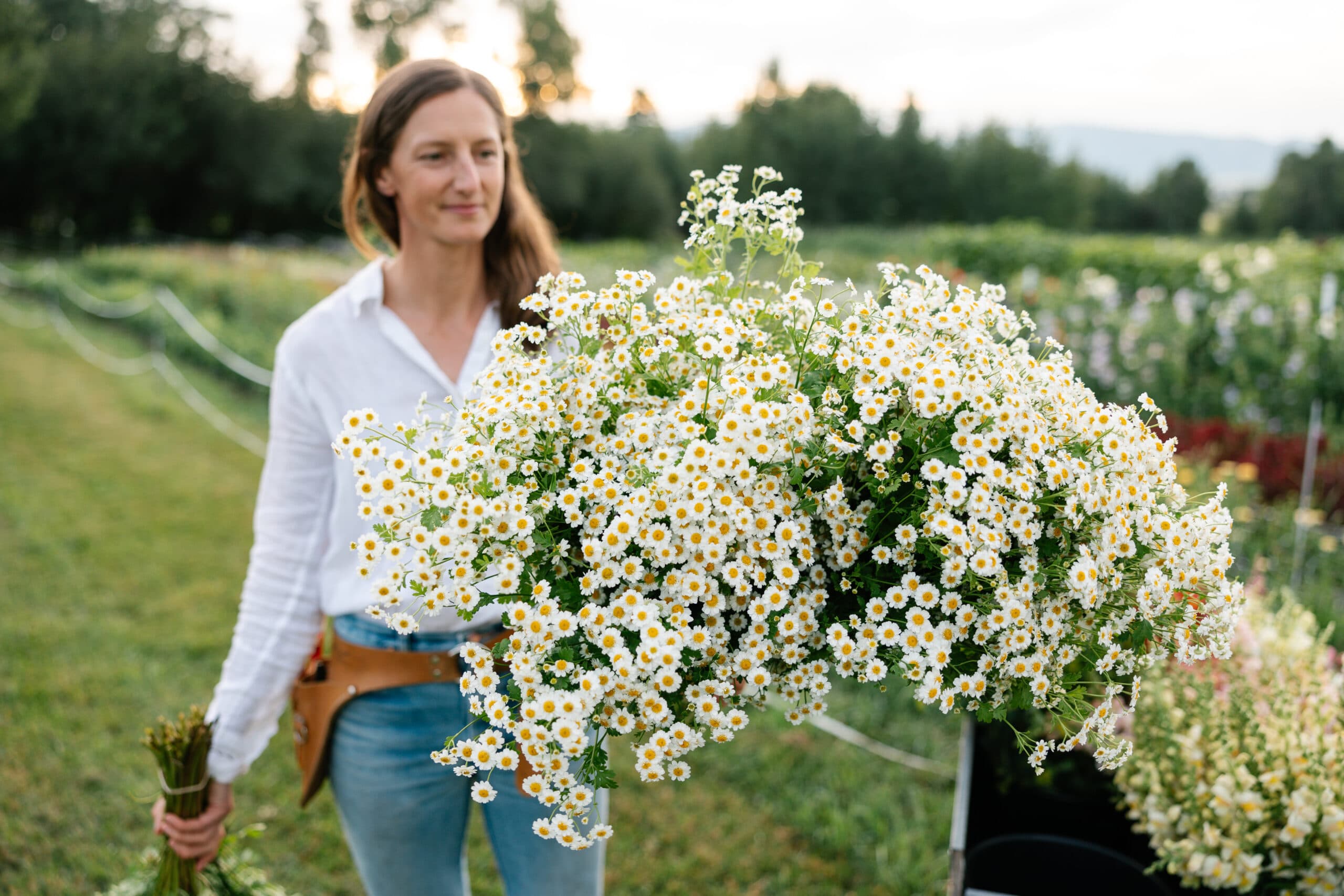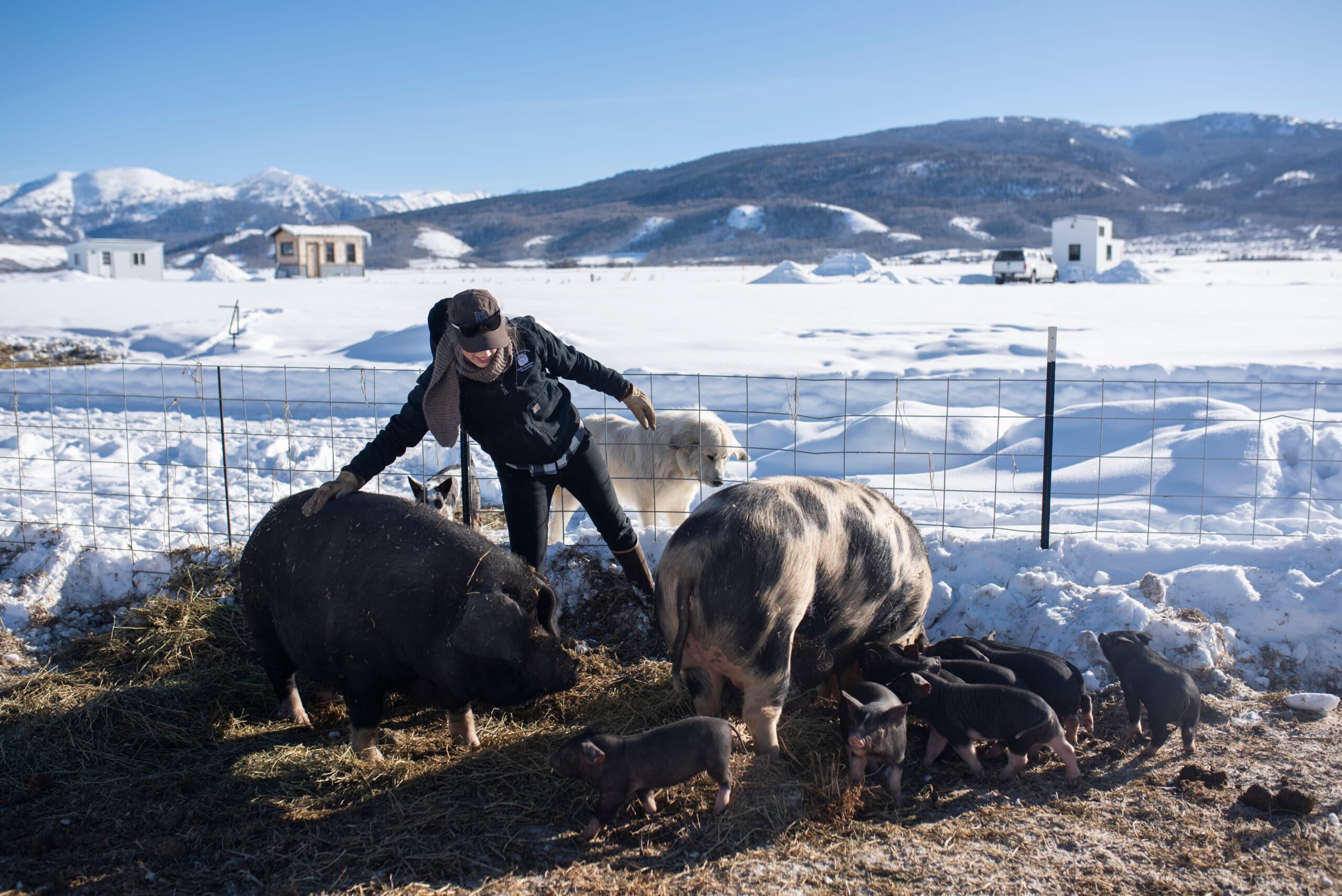Dusty Hound Farms
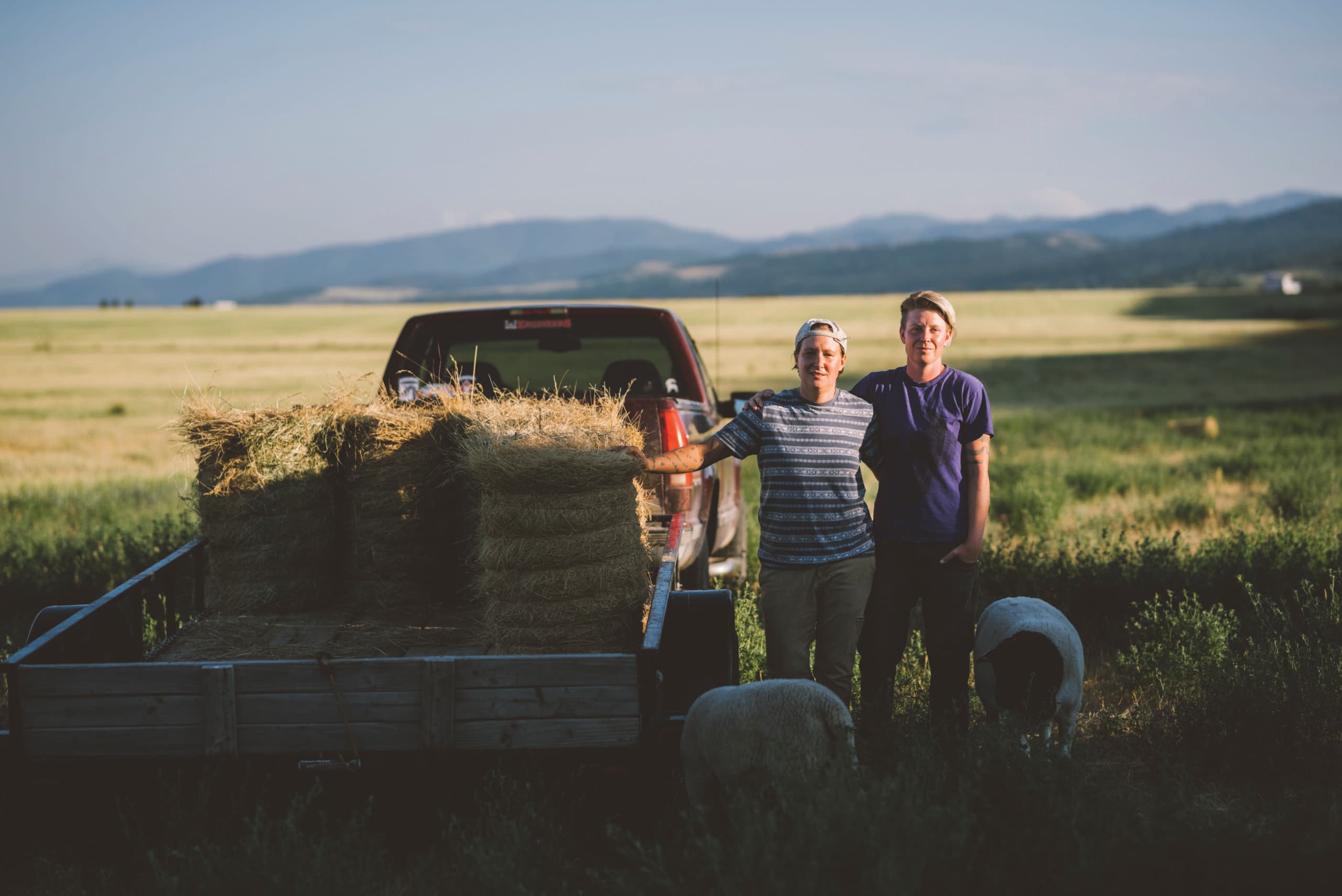
Local farm sets sights on new ag ambitions
Walking the big open spaces along the north bench of Teton Valley—the Teton Range to the east and the Big Holes behind them, shaping the sky and ultimately the space underneath their feet—Amanda and Rebeca Nolan like to let their dogs run and run and run in the endless dirt and fields.
“We would come home and say, ‘Those are some dusty hounds,’” Rebeca says, laughing. “The name felt right.”
“The name also honors Amanda’s grandfather, Dick Hoopes, or D.H.,” Rebeca says. “The family was such a large part of the reason we decided to move. We didn’t think it was a possibility, this life. Neither of us were farmers, but they planted a seed in our head.”
Amanda’s family are longtime agricultural pioneers in the northern parts of Teton Valley. While the Hoopes family continued to grow grains and potatoes, Amanda grew up on the East Coast and visited the valley in the summers. In New York, she established a career and found Rebeca. Fast forward, and the two settled in and were carving out a successful life back East—Amanda as a dental lab technician and Rebeca as a project manager for a manufacturing and engineering company. Then, they wondered, could they?
“We were working such long hours that we had to pay someone to walk our dog,” Rebeca says of life in a faster lane. “What are we doing with our lives if we have to pay someone to walk our dog? We enjoyed our careers and were comfortable, but it wasn’t what we wanted to do.” Now, they are working on their seventh growing season at Dusty Hound.
Dusty Hound Farms was a leap, as they say, of faith, nurtured by family encouragement and grown through a community’s appetite for homegrown, sustainably produced food. The land has been cultivated by generations of Teton Valley growers whose roots are the foundation of Amanda’s family tree. And while the high-altitude farming tradition continues to give way to developing skylines and ski resort expansions, Amanda and Rebeca are leasing family plots, re-sowing the magic that Amanda remembers from her childhood visits.
Many of Amanda’s family members have moved on from farming and ranching, save a few who still cut hay in the fall. But it’s not the kind of farming that the women are pursuing. To find support and mentorship, they have reached out beyond the boundaries of the valley to a niche agricultural community that has spurred them on while teaching them even more.
As a United States Army veteran, Rebeca tapped into the national Farmer Veteran Coalition. The program’s mission is to “Cultivate a new generation of farmers and food leaders and develop viable employment and meaningful careers through the collaboration of the farming and military communities.”
Rebeca attended a national conference in California and from there has found endless support through the coalition, including mentorships and financial programs. While most states have coalitions where veterans can tap into programs, Idaho did not. Until recently. Rebeca was a founding board member, helping to establish the State of Idaho’s first Farmer Veteran Coalition. To date, she says, the new group has reached out to about three hundred veteran farmers in Idaho. They hope to develop the coalition into a cohesive group with the help of a handful of other founding board members.
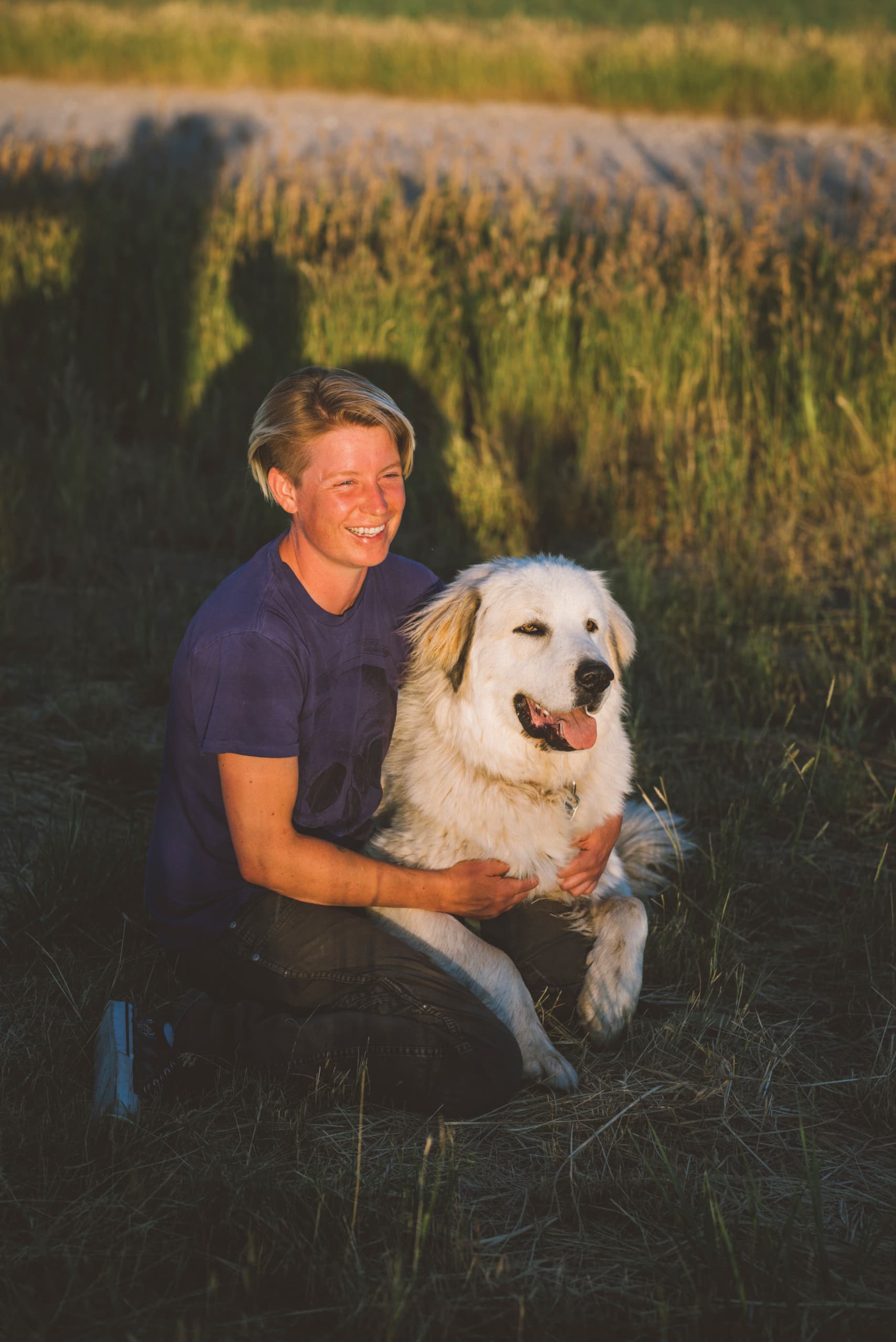
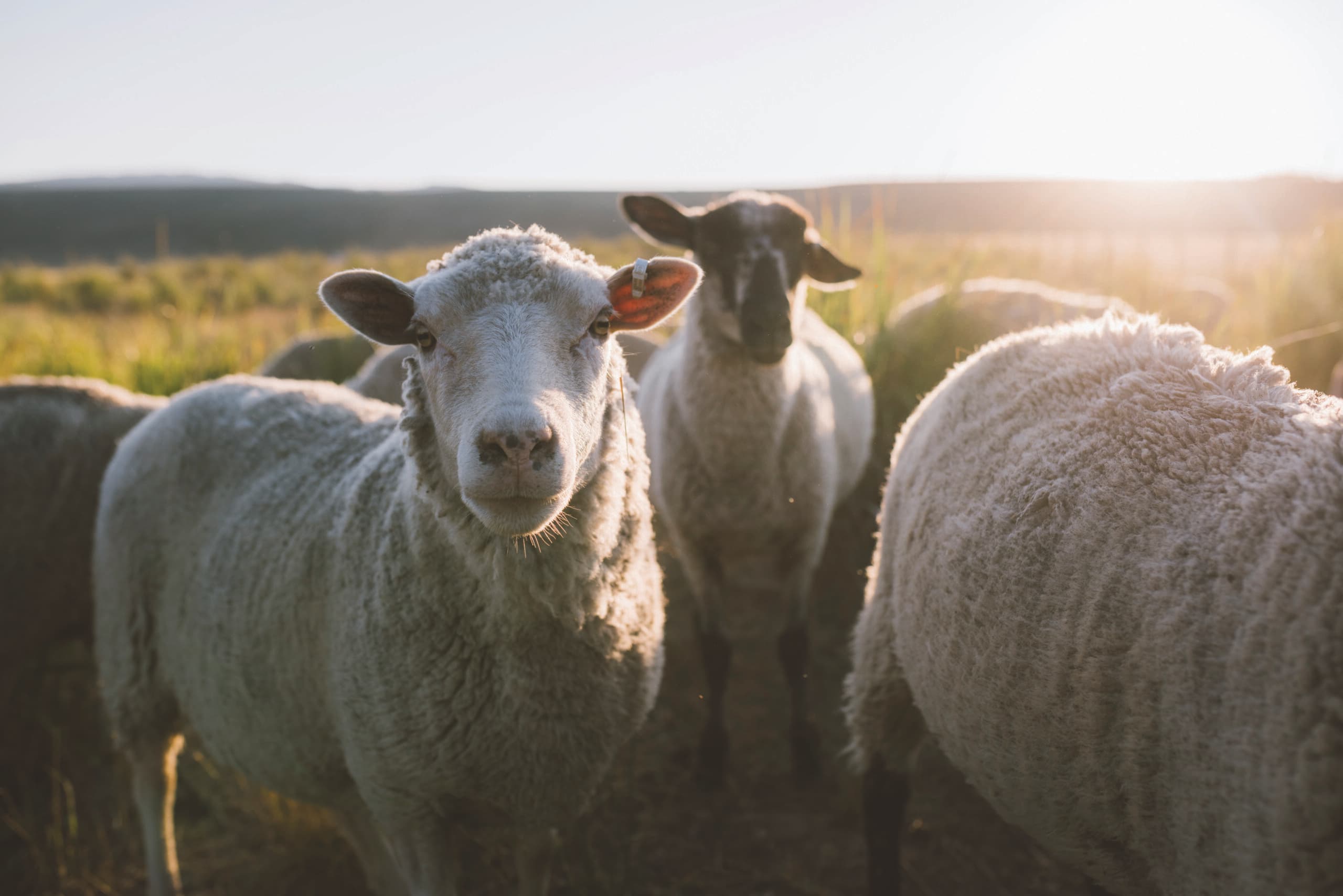
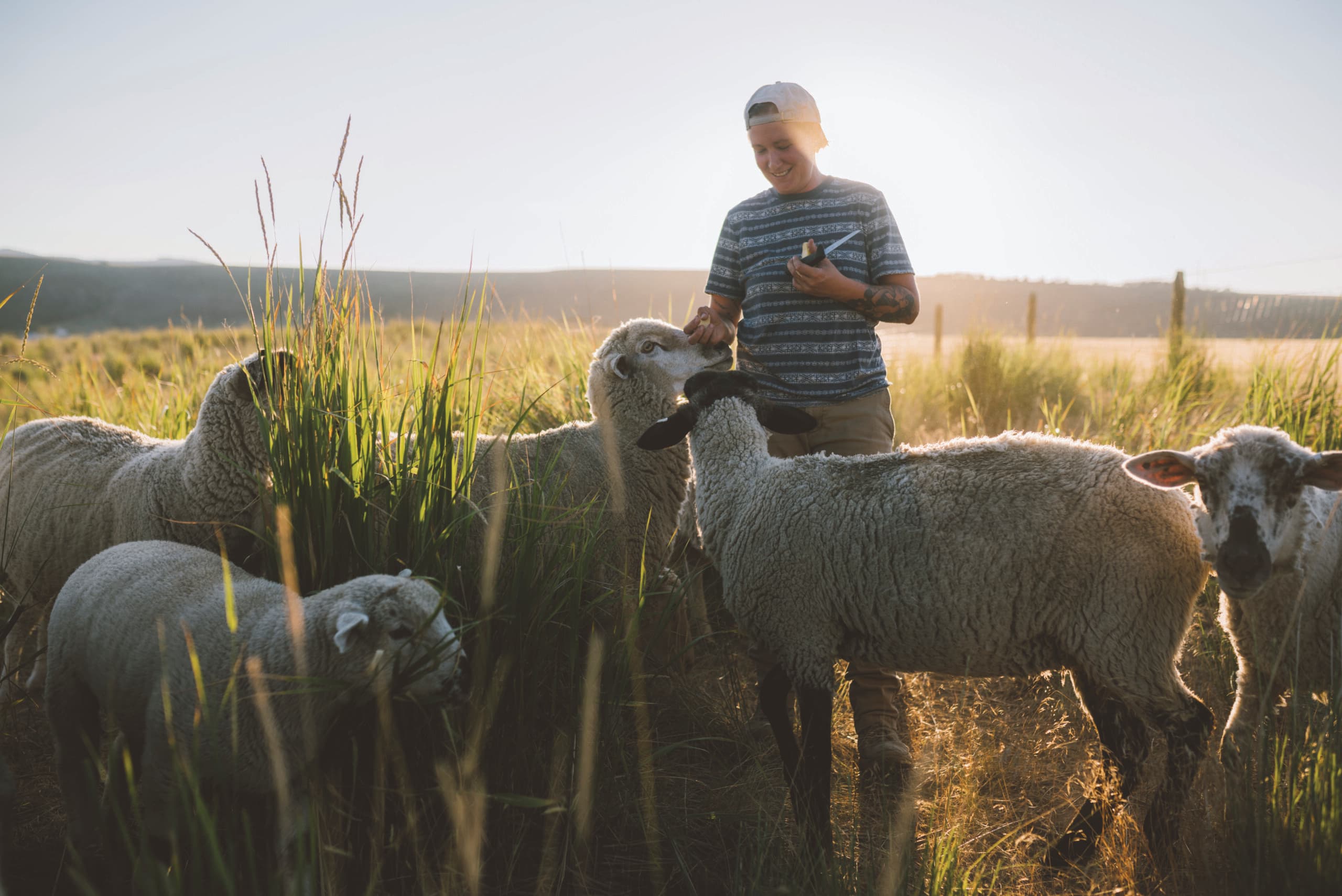
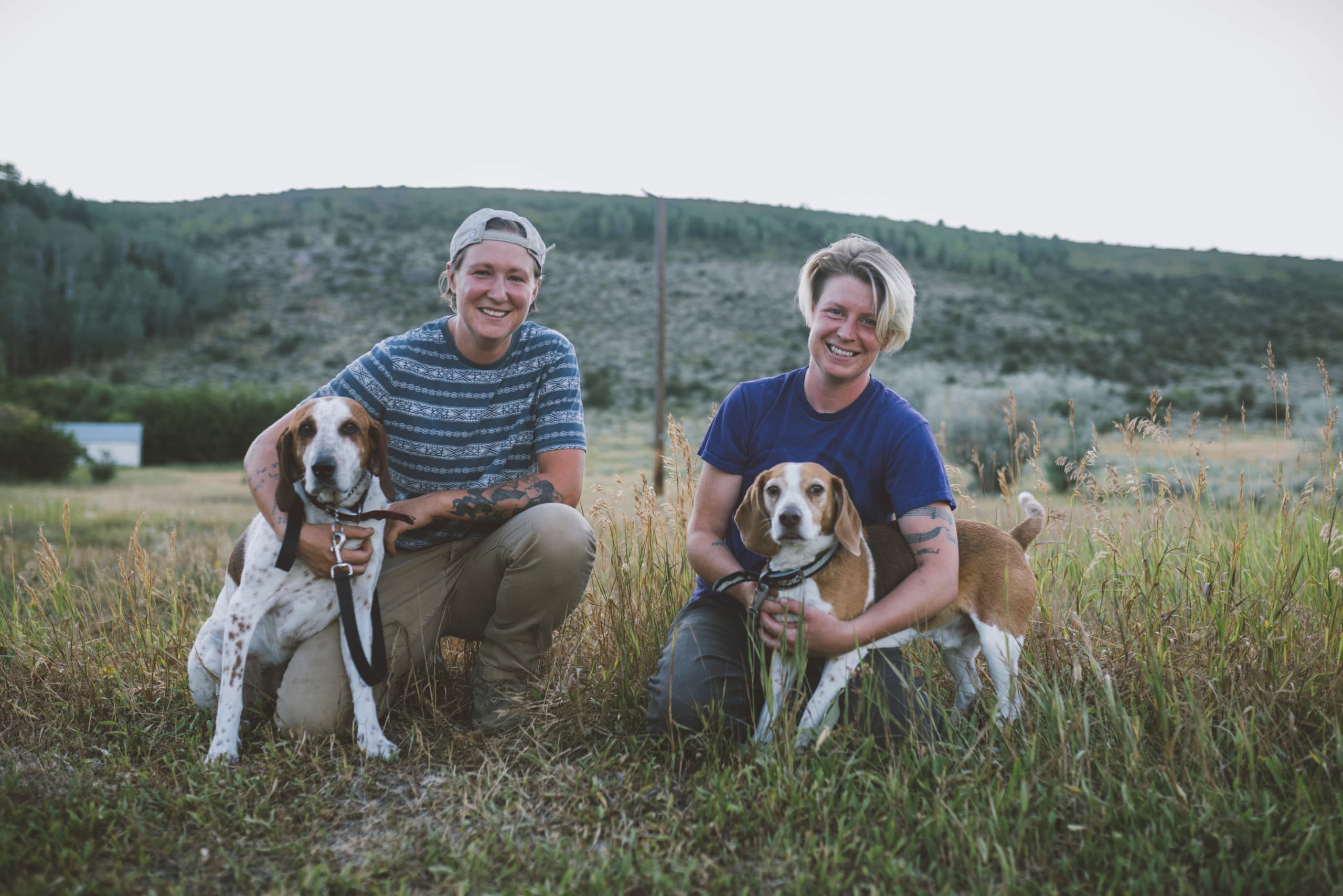
As the two growers round the corner of another spring season heading into the summer months, they are excited to cultivate another idea on the farm: Raising lambs.
“For the long term of the business, we will be transitioning out of produce,”
Rebeca says.
Dusty Hound has grown a popular following at the Teton Valley Farmers Markets over the years, providing signature jams and preserves, honey and raw honeycombs, and seasonal produce.
Looking at the future of farming and the realities of climate change’s impacts on water and wildlife, coupled with volatile supply chains, the decision to shift focus at Dusty Hound Farms did not come lightly. But it made sense.
For one thing, sheep demand less water, says Rebeca. Water is a golden commodity on any ranch or in any agricultural production, but particularly in the area outside of Tetonia where they ranch and farm, known locally as the “dry farms.”
“Our entire model is not just about cost, but everything we do is related to growing,” Rebeca says. “We have this saying—we don’t want to do harm to the land and we want to be responsible in our practice. What you feed your livestock has costs, both financial and environmental costs.”
Where a cow may need a minimum of twenty gallons of water a day in peak summer, a sheep will likely need closer to six gallons. A sheep also uses what water it consumes more efficiently, Rebeca explains. The grass-fed lambs planned for Dusty Hound will graze on sustainably grown pastures. This is one more effort to keep chemicals not only away from the livestock, but away from the wildlife that also make their lives in and around the surrounding farmland.
“It’s fun being a farmer because you get to observe how wildlife reacts and lives around the property,” Rebeca says. “It’s interesting to know how you affect wildlife each time you change the landscape.”
They are planning to build a barn on the property in the next two years and will start with smaller flocks of lambs to get the program up and running. Rebeca knows the names of every lamb on the ground. In preparation for this year’s lamb harvest, she has been training with woolling shears to prepare the lambs for the butcher. Ideas regarding where the wool will go are still being hashed through.
The women will raise Dorset sheep, a favorite Idaho breed, and Polypay Targhee ewes. According to the Livestock Conservatory, the Dorset is an “ancient breed” that originated in England and is famed for their extended breeding season. The Targhee breed was developed in Dubois, Idaho.
You will find Amanda and Rebeca at the farmers market again this year with their honey and jams. You may, however, want to ask about the lamb. All orders, for now, will remain word of mouth.
